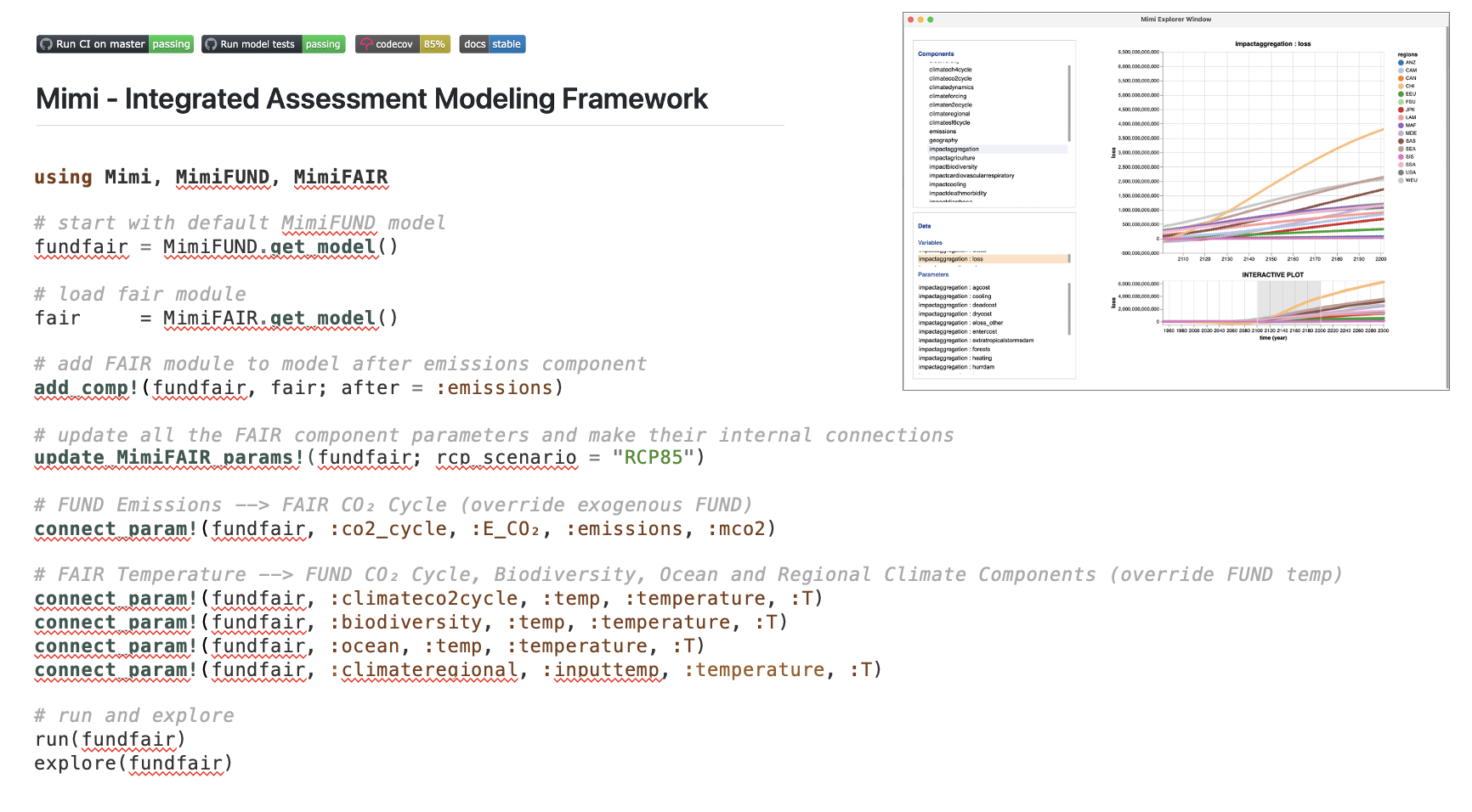
A Few Current Research Interests …
Structural Uncertainty and Sensitivity Analysis
Exploring structural uncertainty, sensitivity analysis, and decision-making under deep uncertainty in the context of integrated assessment, simple climate, and sea-level rise models.
“Robustness to Deep Uncertainties Drives More Rapid Emissions Reductions.” (Submitted)
“Rapid decarbonization reduces but does not eliminate risk of extreme sea level rise due to uncertain Antarctic Ice Sheet marine instability.” (preprint)
“Sea Level and Socioeconomic Uncertainty Drives High‐End Coastal Adaptation Costs.” Earth's Future, 10(12) (2022) (publication)
GlobalSensitivityAnalysis.jl package (Github repository)
Greenhouse Gas Impact Value Estimator (GIVE) Model and SC-GHGs
An open-source, state-of-the-art integrated assessment model incorporating updated scientific understanding throughout all components of social cost of greenhouse gas estimation in a manner fully responsive to the near-term National Academies of Sciences 2017 recommendations.
“Equity weighting increases the social cost of carbon.” Science 385.6710 (2024): 715-717. (publication)
“Comprehensive evidence implies a higher social cost of CO2.” Nature 610.7933 (2022): 687-692. (publication)
"The social costs of hydrofluorocarbons and the benefits from their expedited phase-down." Nature climate change 14.1 (2024): 55-60. (publication)
"The social cost of carbon: advances in long-term probabilistic projections of population, GDP, emissions, and discount rates." Brookings Papers on Economic Activity 2021.2 (2022): 223-305. (publication)
The GIVE Model (Github repository)
Building Programming Tools for Climate Change Research and Policy
Using tools from human-computer interaction and programming language design to study and build programming tools for researchers and policy-makers in the climate change domain.
Ongoing work with the PLAIT lab focused on programming tools for data science as applied to the environmental and climate change fields
"How domain experts use an embedded DSL." Proceedings of the ACM on Programming Languages 7.OOPSLA2 (2023): 1499-1530. (publication)
Mimi.jl
Mimi is an open-source computational modeling platform used widely in climate economics research and policy-making. Written in Julia, this macro-based domain specific language streamlines modeling, collaboration, and replication while at the same time exposing the full power and performance of the Julia language.
“Mimi.jl: A Computational Modeling Platform to Support Climate Economics Research.” (Drafting)
"MimiBRICK. jl: A Julia package for the BRICK model for sea-level change in the Mimi integrated modeling framework." Journal of Open Source Software 7.76 (2022): 4556. (publication)
The Mimi.jl Package (homepage)



